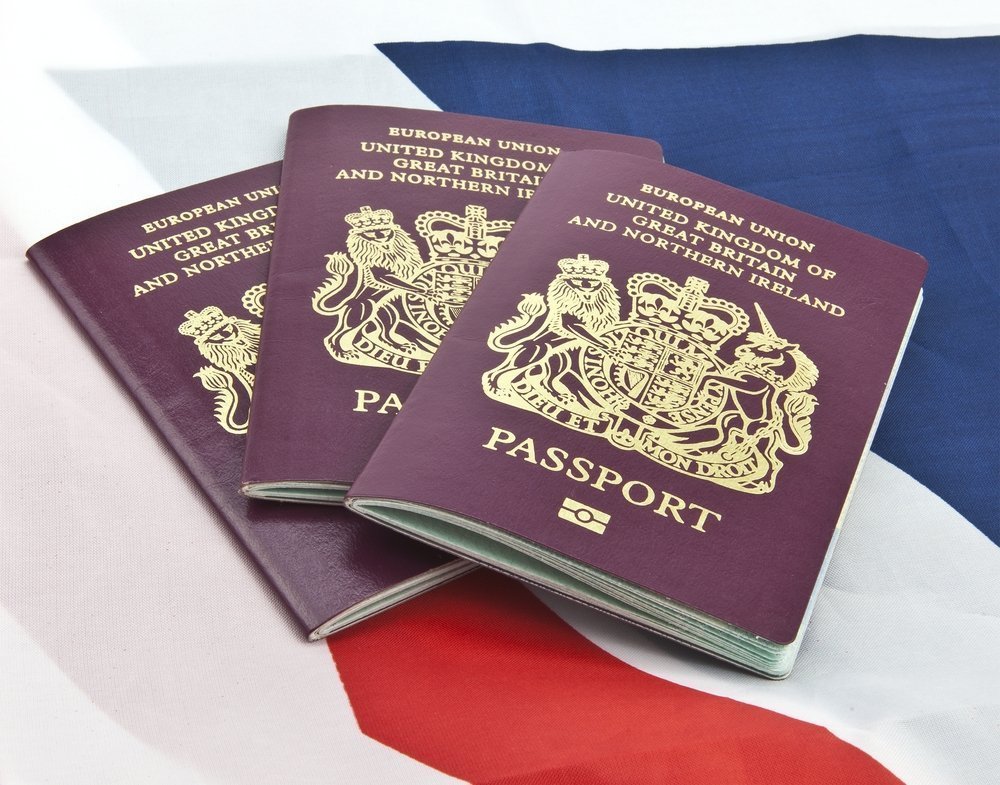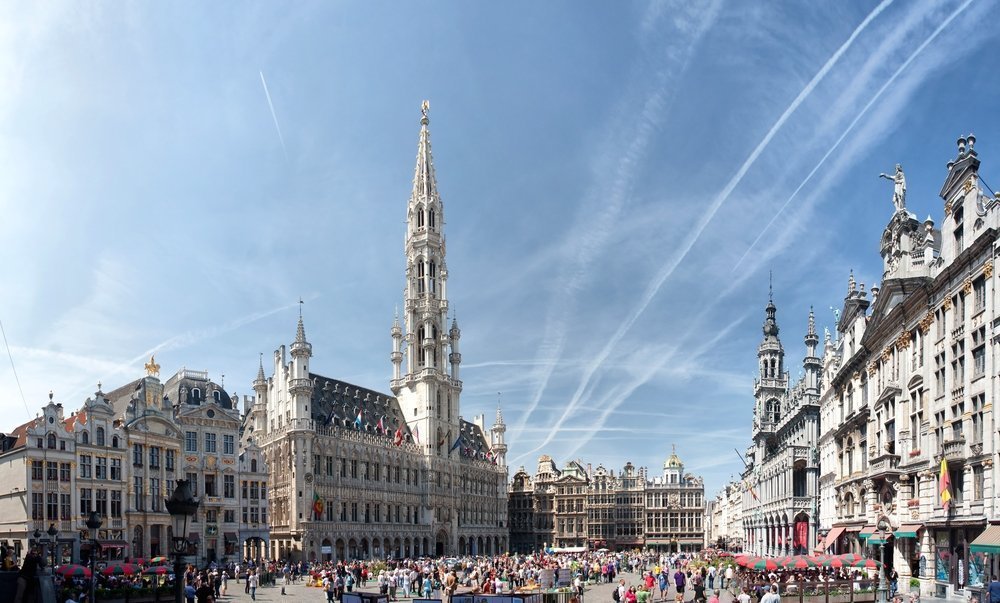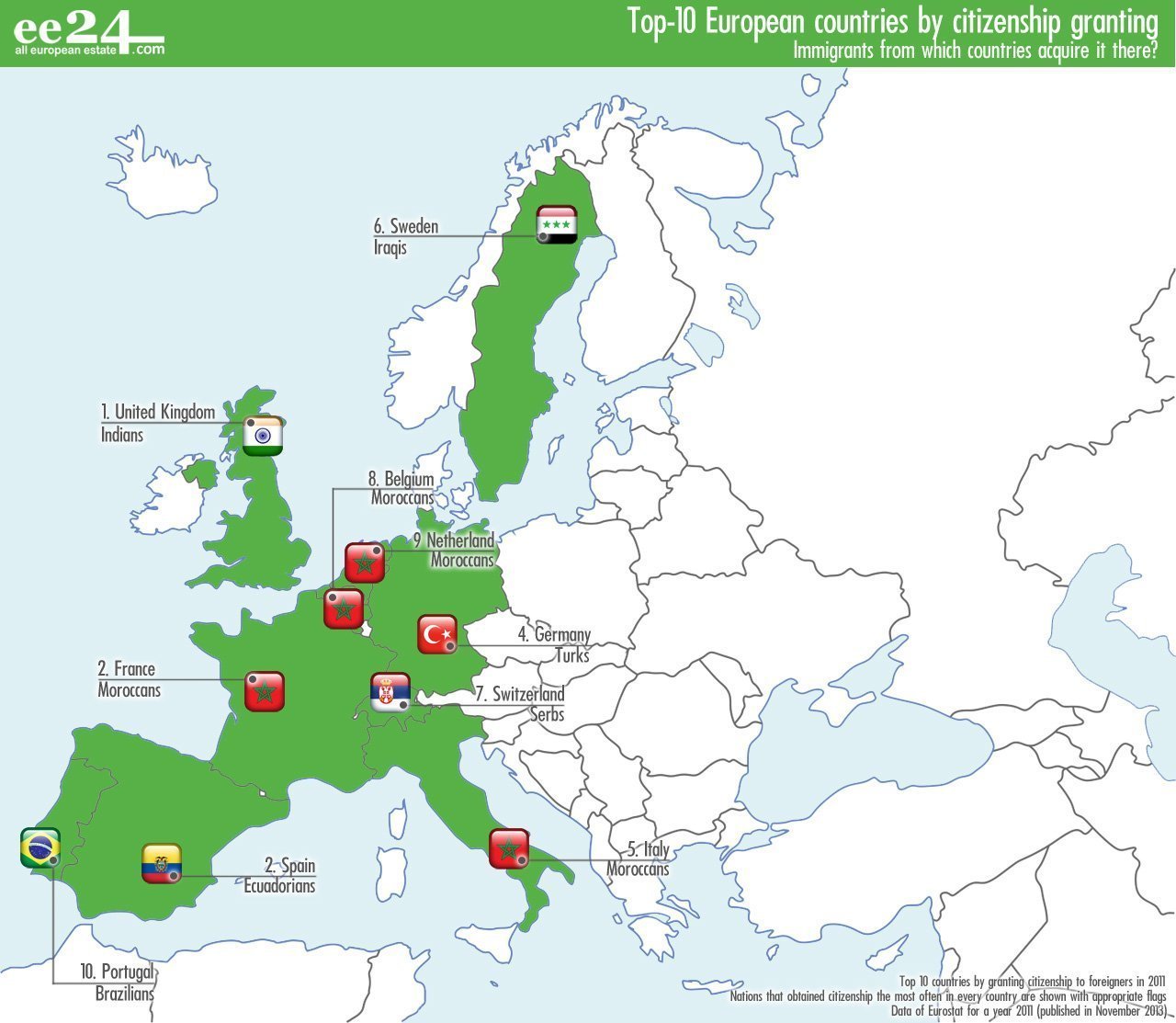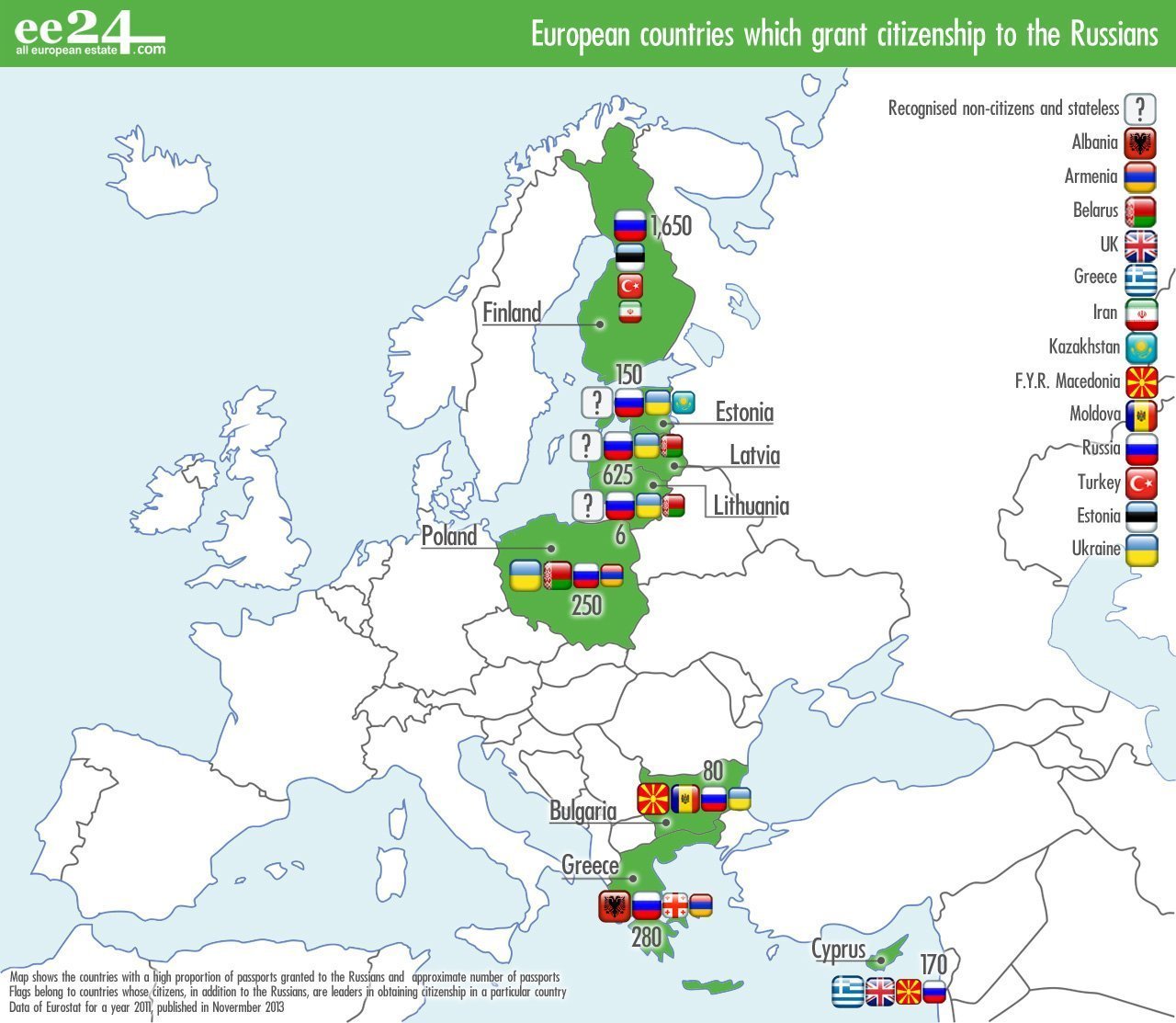The day before yesterday the European statistical agency Eurostat has published a report on citizenship in the European Union in 2011. Citizenship was granted to 783,000 foreigners, "the most hospitable" countries were the UK, Germany, France, Spain and Italy.
Which countries offer citizenship of the European Union?
In 2010, 812 thousand foreigners aquired citizenship of the EU , and in 2011 only 783 thousand. Citizenship of the UK was aquired by 178 thousand people (-9% to 2010), of France and Spain - 115 thousand people (-20% and -7%), of Italy - 56 thousand people (-15%). Among five countries leading in number of granted passports, in 2011 only Germany has issued more than in 2010, namely 110 thousand (+5%).

In 2011, EU citizenship was granted to 2.3% foreigners living in there. Hungary has issued 10 passports per 100 foreign residents, Poland has issued 7, Sweden - 6, Malta - 5 and Portugal - 5. At the same time, Estonia, Austria, Latvia, the Czech Republic and Slovakia have granted citizenship to less than 1% of their foreign population. Well, maybe foreigners can live comfortably in these countries without obtaining citizenship.

Brussels
Who gets citizenship of the European Union?
New EU citizens in 2011 were primarily from Africa (26%) and Asia (23%). But Europeans (19%) and Americans (17%) did not get such a wide access to the united Europe. 11% of those who had acquired citizenship in the European Union are former citizens of other EU countries. For example, Brits who moved to Cyprus.
EU has issued most of passports for Moroccans (64 thousand, mostly in France and Spain), Turks (49 thousand, Germany), Ecuadorians (34 thousand, Spain) and Indians (32 thousand, the UK). In many of these countries one can buy an affordable housing . For example, price of residential property in Spain dropped by 40% since the beginning of the crisis. Prices for houses and apartments in France are also slightly lower, especially in small towns and rural areas.

Full size
| |
Country |
New citizens (in thousand of people) |
Leaders (per cent from the whole amount) |
| 1 |
UK |
177.6 |
Indians (14.8%) |
| 2 |
Spain |
114.6 |
Ecuadorians (27.9%) |
| 2 |
France |
114.6 |
Moroccans (18.3%) |
| 4 |
Germany |
109.6 |
Turks (25.7%) |
| 5 |
Italy |
56.2 |
Moroccans (19.1%) |
| 6 |
Sweden |
36.6 |
Iraqi (16.9%) |
| 7 |
Switzerland1 |
36 |
Serbs (11.8%) |
| 8 |
Belgium |
29.8 |
Moroccans (23.6%) |
| 9 |
Netherlands |
28.6 |
Moroccans (23.9%) |
| 10 |
Portugal |
23.2 |
Brazilians (23%) |
| 11 |
Hungary |
20.6 |
Romanians(76.2%) |
| 12 |
Greece |
17.5 |
Albanians (88.1%) |
| 13 |
Norway1 |
14.4 |
Somalis (14,7%) |
| 14 |
Ireland |
10.7 |
Filipinos (16.3%) |
| 15 |
Turkey1 |
9.2 |
No data |
1 - country is not a member of the EU
Which European countries grant citizenship to the Russians?
In 2011, the only country in the European Union, where the Russians have been leaders in obtaining citizenship, was Finland. In addition to the Russians (36%), Finnish passport were issued for Estonians (7%), Turks (4%) and Iranians (3%).
Among foreigners who've become citizens of Greece, the Russians are #2 with 1.6%, while Albanians are #1 with 88%. May be the proportion of Russians will increase soon, considering cheap real estate in Greece, as well as an opportunity to obtain a residence permit in Greece when buying a home. Residence permit is the first step of getting the coveted citizenship.
In 2011, Bulgaria has granted its citizenship to ex-residents of Macedonia (44%), Moldova (14%), Russia (13%) and Ukraine (8%).
Most of Polish passports were issued to Ukrainians (31.5%), Belarusians (11%) and Russians (7.5%).
There were 25% of Greeks, 15% of Brits and 14% of Macedonians and 8% of Russians among those who have aquired citizenship of Cyprus in 2011.
According to statistics, Estonia, Latvia and Lithuania have granted citizenship primarily to "recognized non-citizens" and stateless persons. The proportion of Russians was also high.

Full size
It should be noted that Russia wasn't among four leading nations whose ex-residents obtained citizenship in Germany, France, Italy, Portugal or the United Kingdom.
Text: Alexander Fetyukov, ee24.com